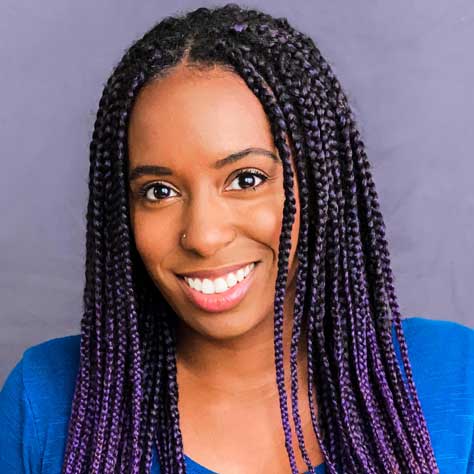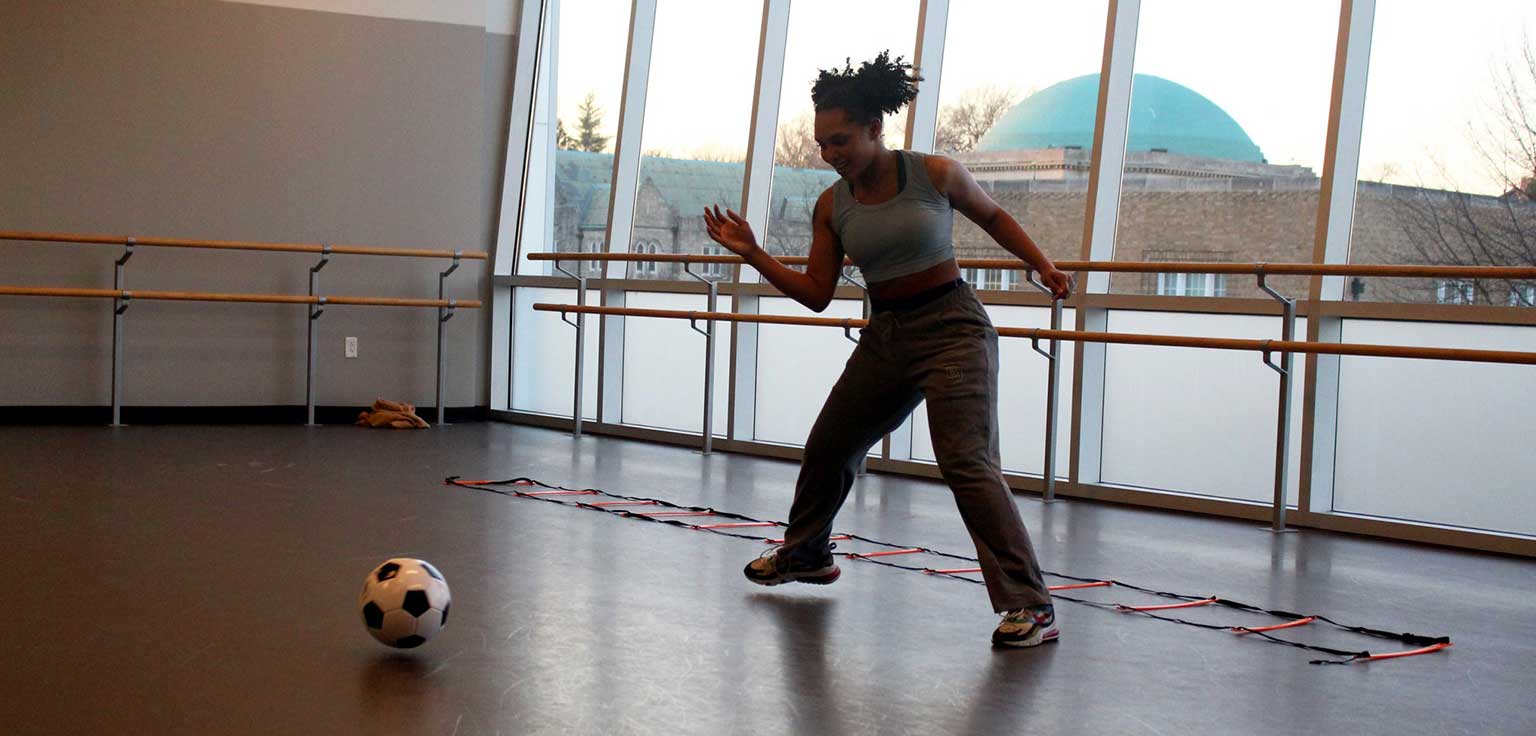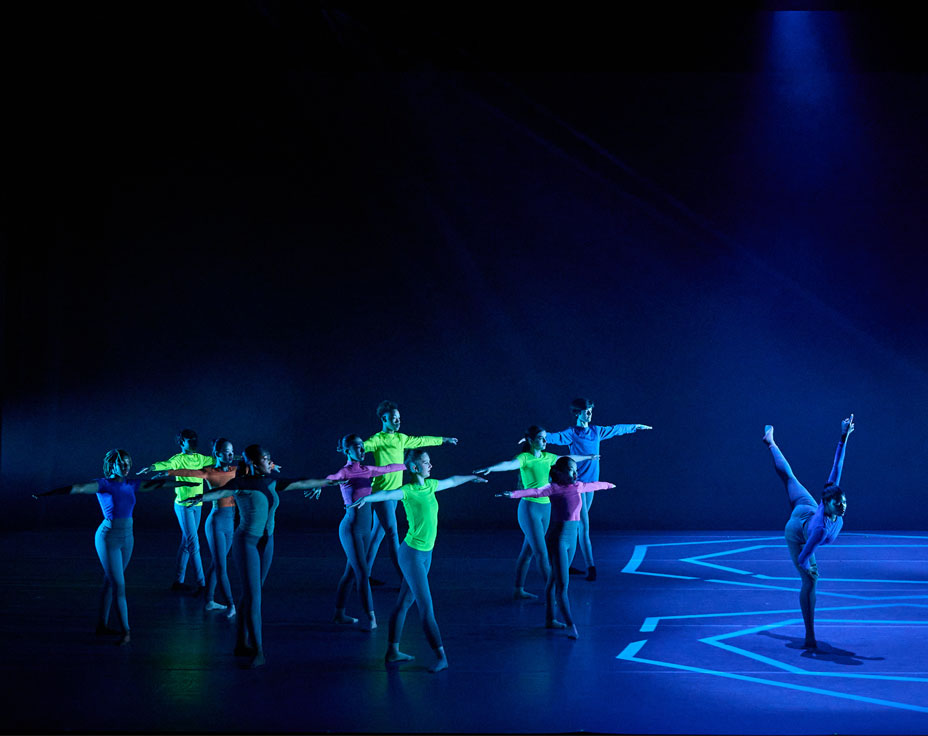
Ashleigh Akilah Rucker, director for COCA’s production of The Wolves, shares some insight into the artistic process and what audiences will see on stage, March 24–26.
Tell us about your involvement with COCA so far and returning to direct The Wolves.
I came to COCA by way of the REIMAGINE playwriting grant, which was a wonderful opportunity to center BIPOC playwrights in the entire American theatre industrial complex. I chose St. Louis and COCA because there was something special happening here, and I knew it was a place that I wanted to bring my play. I am overjoyed that the feeling was mutual, and COCA invited me back to direct The Wolves. I could not think of a better place to tell this story at this time and with this program.
What themes are explored in this work?
I think the one thing that I really love about the play is how relevant it is to young women and young people in general. We get to deal with everything from what it means to figure out who you are, to sexuality and gender orientation, to your place in the political and social world, to what it means to be coming of age. This program and working with students who are this age and going through these issues only makes the play richer and more exciting to present.
Are there any moments that you are excited for audiences to witness?
I’m excited for audiences to witness the entire play! It is fast paced. It is in your face. It really pushes people outside of their comfort zones. So, I’m excited to see how that is going to land. I’ve been told that this is one of the bolder plays that COCA has presented, and I’m excited to be a part of that retelling in such an authentic way that I’m hoping people will really pick up on the themes, relate to it, see themselves in it, or experience something a little outside of themselves.
This is the debut play of playwright Sarah DeLappe that first debuted in 2016. Is there a difference in your approach to directing when working on a newer play that hasn’t been produced many times?
I think because this play is fairly new—it has been produced a lot especially for younger high school aged students—what I like to do is really figure out why is this story important right now to the people in the room. That has opened so much to this play because it is relevant—it is about being able to stay with the times and being able to tell the story of these young women on this indoor soccer team and really figuring out the struggles that they are going with. I feel like my approach is easier in a sense because there isn’t this long history and this established viewpoint of what the play is already but that also leaves a lot to play with. I like to sit and find that pocket of being able to approach the work in the relevancy of the story we are trying to tell through the amazing cast that we have!
Have there been any challenges as you’ve worked to bring this play to life?
There’s a lot going on: We’ve got a lot of soccer balls, a lot of movement, a lot of overlapping dialogue and it’s about finding the rhythm of it and finding the underlying story that is each character’s inner conflict and how to map that out on a soccer field with folks who maybe haven’t played the sport before. I’m so impressed by the commitment that the cast has brought and also the support that COCA has brought in order to create a space where we can really spend an hour playing soccer and learning that.
Tell us about your experience working with COCA’s Pre-Professional Division Students on this work, and what do you hope they have learned through the artistic process?
The COCA Pre-Professional Division is probably one of the biggest draws. I thoroughly enjoy working with young people, specifically sitting in their presence and understanding what is going on in their lives. And so, this program and this play marry themselves beautifully. We can’t tell a story about young women when we have those same women in the room if we aren’t going to listen to them and understand how authentic this story is to them. Not only with the cast, but also the crew, I’ve been able to find moments where we can work with our mentorships with our adult students, and I really want to just create a space where we are constantly learning and engaging with the themes. It’s not just about the play. It’s about how these themes are landing with us. It’s about being able to create spaces where students can write, reflect, and share—or not share. Sometimes we just need a moment to process things. And that has really enriched the room. It’s created a safe place for us to explore the themes and the play, and I’m really hoping that this underlying context will show itself on the field, on the stage, as we present this play.
What other work do you have coming up?
I work full time with Kaiser Permanente Educational Theatre and we have just recently launched a new national shared service model where we are able to present our work from California to the mid-Atlantic to Georgia to Hawaii, so I’m excited to strategize on that and how we present educational theatre in all these different regions.
Other work coming up includes play development, consulting work, racial equity and arts consulting work, and my first feature film that I produced that will be released this summer!

